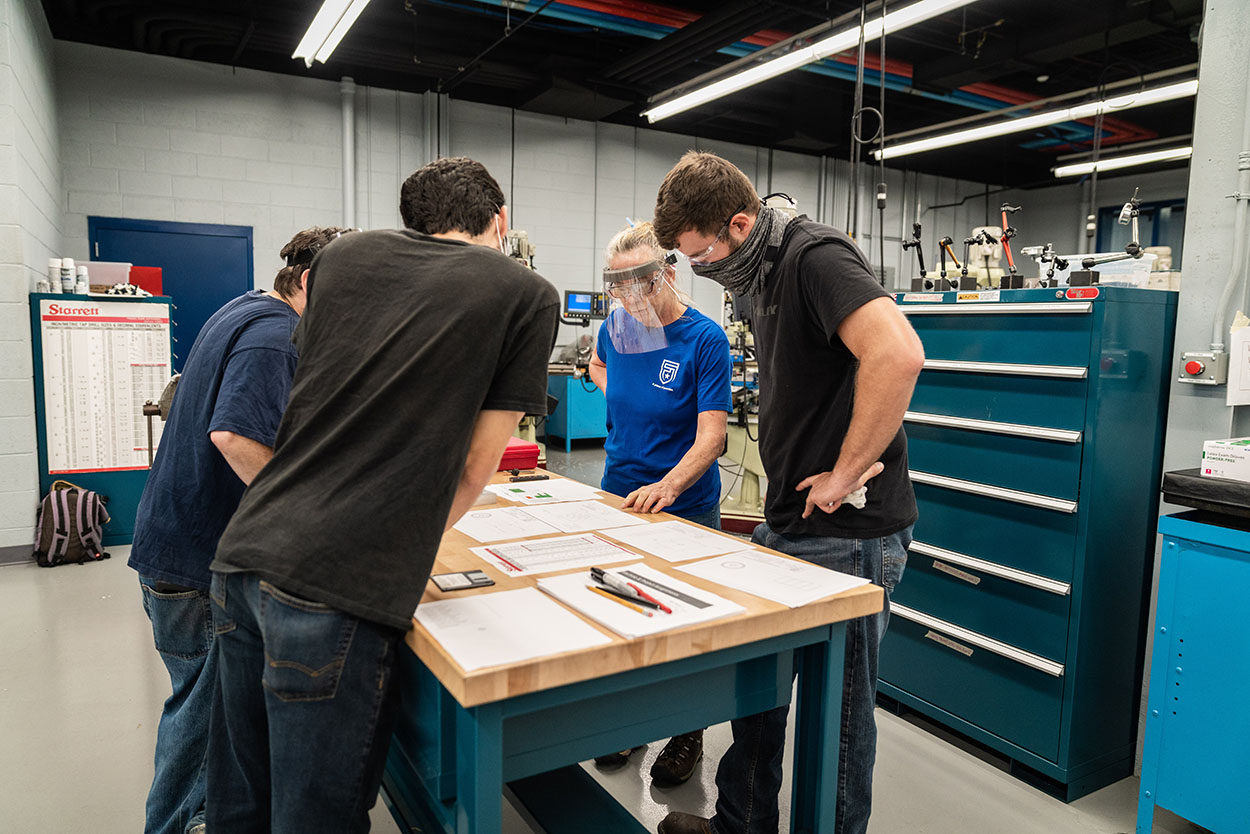Faculty & Staff News
Forsyth Technical Community Faculty and Staff in First Cohort of Community College Growth Engine Fellowship Program

Faculty & Staff News

Education Design Lab (the Lab) announced the first cohort of participants in the Community College Growth Engine Fellowship Program on January 18, 2024. The Fellowship will support 11 higher education leaders from five different states as they build plans for the development and state-wide implementation of micro-pathways – or, short-term, stackable, job-relevant credentials that can be completed in one year or less – that help postsecondary institutions respond to an increasingly skills-driven world of work.
Fellows will have the opportunity to observe and engage in the rollout of Montana’s “Year to Career” Initiative and then subsequently design micro-pathway implementation blueprints for their respective states that will include the strategies, approaches, and tools to support the system-level design and sustainability of micro-pathway programming.
As employers in both the public and private sector abandon the bachelor’s degree as a requirement in job postings, learners and workers are seeking new ways to enhance their career skills. More adaptable and affordable than their four-year counterparts, community colleges are in a unique position to proactively address and surmount the challenges of this economic era, making them the perfect hosts for locally or regionally appropriate workforce programs geared toward today’s learner-earners.
“As the skills-first movement picks up speed, it is critical that states and postsecondary institutions begin to follow in Montana’s footsteps and evolve into agile centers of career-connected learning,” said Dr. Lisa Larson, Senior Vice President of College Transformation. “We see this Fellowship as the foundation for helping bring the innovation, collaboration, and momentum of Montana to other states ripe for overhaul of the conventional college-to-career pipeline.”
Individuals selected for the Fellowship include:
Michael Brown, PhD, Washington State Board for Community and Technical Colleges
Mason Campbell, Arkansas Division of Higher Education
Shelton Charles, PhD, Forsyth Technical Community College
Tracy Harrell, Arkansas Division of Higher Education
Renee Harrison, Forsyth Technical Community College
Cyndi Johnson, Forsyth Technical Community College
Mary Beth Lakin, Minnesota State
Robb Lowe, EdS, Minnesota State
Nancy Miller, Forsyth Technical Community College
Alissa Sells, Washington State Board for Community and Technical Colleges
Travis White, PhD, Tulsa Community College
“This Fellowship opportunity will move us more rapidly than we thought possible toward developing and launching more equitable and transparent educational pathways for learners across our state,” said Alissa Sells, policy associate in the Office of Educational Resources & Innovation at the Washington State Board for Community and Technical Colleges.
Over the next 12 months, from December 2023 until December 2024, Fellows will work with the Lab to design blueprints for the implementation of equitable and accessible micro-pathways that lead to high-growth careers in fields such as health care, information technology, advanced manufacturing, and renewable energy. Starting with an orientation process to gain an understanding of the CCGE program, human-centered design, and micro-pathways, fellows will participate in both in-person and virtual convening and design studio sessions. In this collaborative learning environment, Fellows will design “blueprints” for postsecondary system- and state-wide implementation of micro-pathways with the support of CCGE alumni designers.
“We’re proud to have four fellows selected in this first cohort with the Education Design Lab,” said Dr. Janet Spriggs, President of Forsyth Tech. “I look forward to seeing how their growth engine work will benefit our campus community, and the counties we serve as a whole.”
This Fellowship builds upon the Lab’s recent work in Montana to expand the college-to-career pipeline. Institutions throughout the state of Montana are collaborating with local employers, learners, and local stakeholders to design skills-focused educational pathways to create new opportunities for Montanans and meet the state’s growing workforce needs.
Additionally, Paula Dibley, Chief Officer of Student Success & Strategic Innovation at Forsyth Tech, is a member of the Education Design Lab’s Designer in Residence program, as previously announced in August 2023. In this program, each designer learns equity- and human-centered design and gain valuable insight from mentorships with the previous Designers in Residence Cohort. Additionally, each designer receives a $75,000 grant award for their institution from The Gates Foundation to support this work.
Since its launch in 2020, the Lab’s Community College Growth Engine (CCGE) has supported 50+ institutions in designing and delivering over 100 skills-focused, market-driven, and employer-validated educational pathways across six sectors and over 30 occupations. Initial funding for the CCGE Fellowship has been generously provided by Walmart.